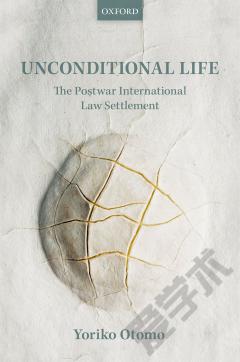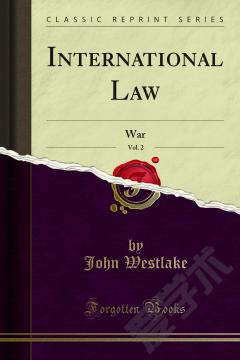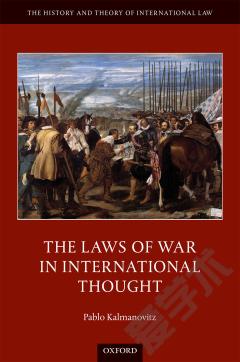Unconditional Life —— The Postwar International Law Settlement
----- 不设限的生活
Drawing on philosophy, history, and critical theory, this book introduces a new perspective on the significance of post-war international law developments. The book examines the public discourse regarding technological risk in the Second World War texts of unconditional surrender in the World Trade Organizationâs ECâBiotech dispute and in the International Court of Justicesâ Nuclear Weapons Advisory Opinion. The volume describes international law in terms of its management of, and relation to, the risks associated with technological innovation in war and in trade. It proposes that international law, too, is itself a kind of technology: one intended to manage the material and existential risks inherent in the creation of a new international, post-colonial, political community emerging out of the Second World War. Members of this community are imagined to possess a universal quality: humanness, which itself is underscored by a power of invention. The book demonstrates how international lawyersâ inability to adjudicate questions of large-scale technological risk is due to the competing and intractable claims of international law. Offering a feminist analysis of the political economy that has created this crisis of governance, the book provides a way of understanding the structural inequities that will need to be addressed if international law is to remain a relevant forum for the adjudication of war and trade into the twenty-first century.
{{comment.content}}








 京公网安备 11010802027623号
京公网安备 11010802027623号